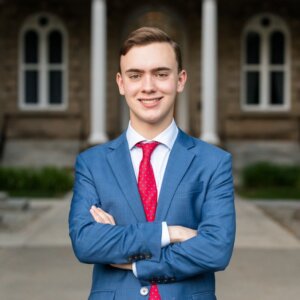For this Persian Jewish casino magnate in Nevada, Israel is part of the deal
Atlantis Casino Resort Spa CEO John Farahi’s journey from Tehran to Reno
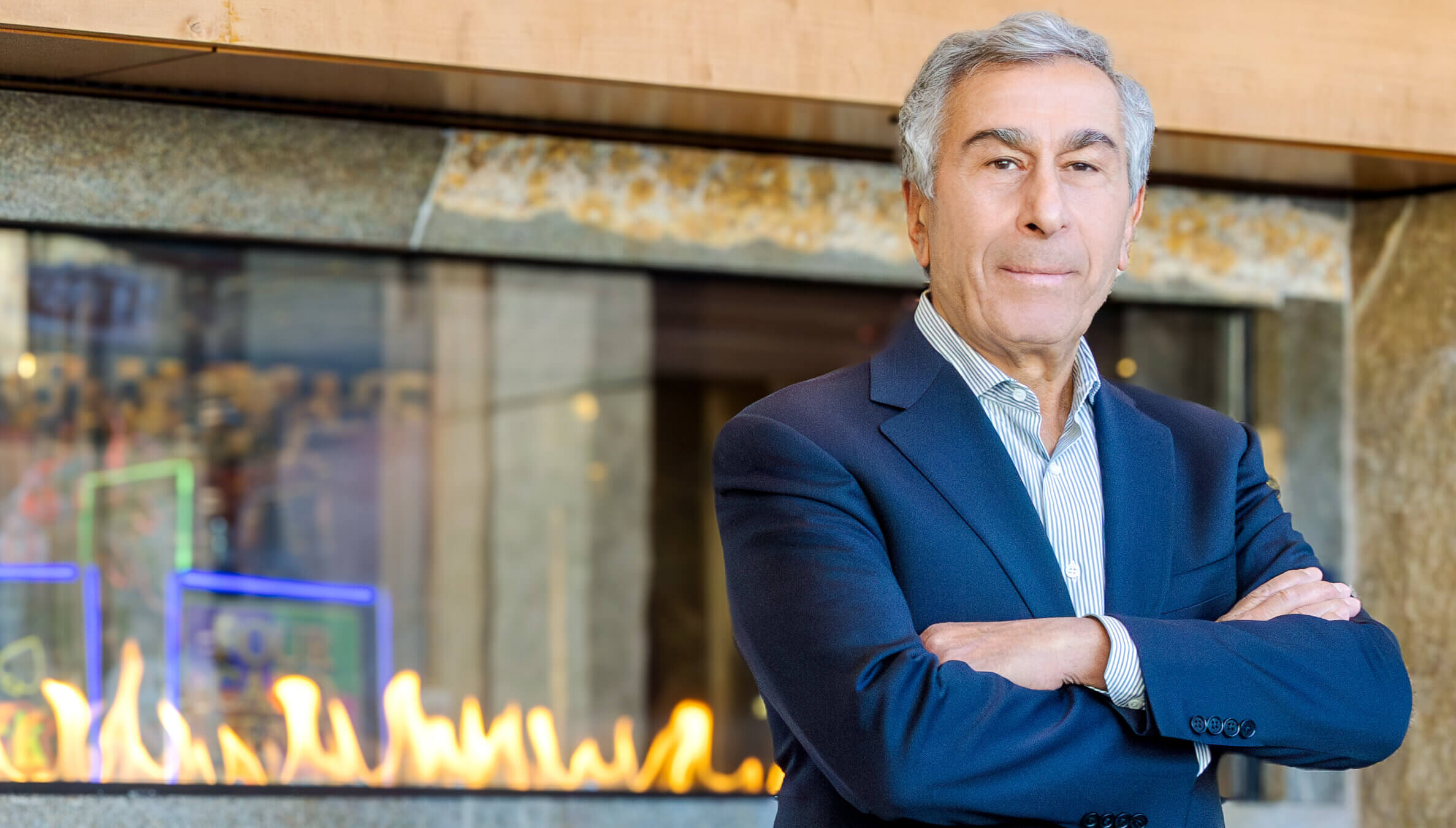
John Farahi stands just off the casino floor at the Atlantis Casino Resort Spa — one of the two properties that he manages through Monarch Casino & Resort, Inc. Courtesy of Atlantis Casino Resort Spa
RENO, NEVADA — For John Farahi, a proud Persian Jew and chief executive of the Atlantis Casino Resort Spa, the casino business is about more than generating profit for his shareholders — it’s also about promoting Israel and Jewish values in this corner of the American West.
In recent weeks, Farahi, who was born in Tehran, has grown frustrated with commentators who claim that Israel is at war with Iran.
“It is not Israel at war with Iran. Israel has no issue with Iran. It has never had an issue with Iran. It is Iran that says that Israel has no place to be a Jewish state, and the mullahs will do whatever it takes to destroy the Jewish state,” Farahi said.
After the U.S. attacked Iran’s nuclear program, “The western world should be relieved,” said Farahi. “What has happened is absolutely a success for, truly, the whole Middle East.”
Driving down Virginia Street, Reno’s main drag, one might encounter ads for loose slots and buffet specials on casino marquees that tower overhead. Yet, until recently, tourists outside the Atlantis also encountered an unexpected PSA: a video of Israeli and American flags fluttering in the wind, emblazoned with the motto “#StandWithIsrael.”
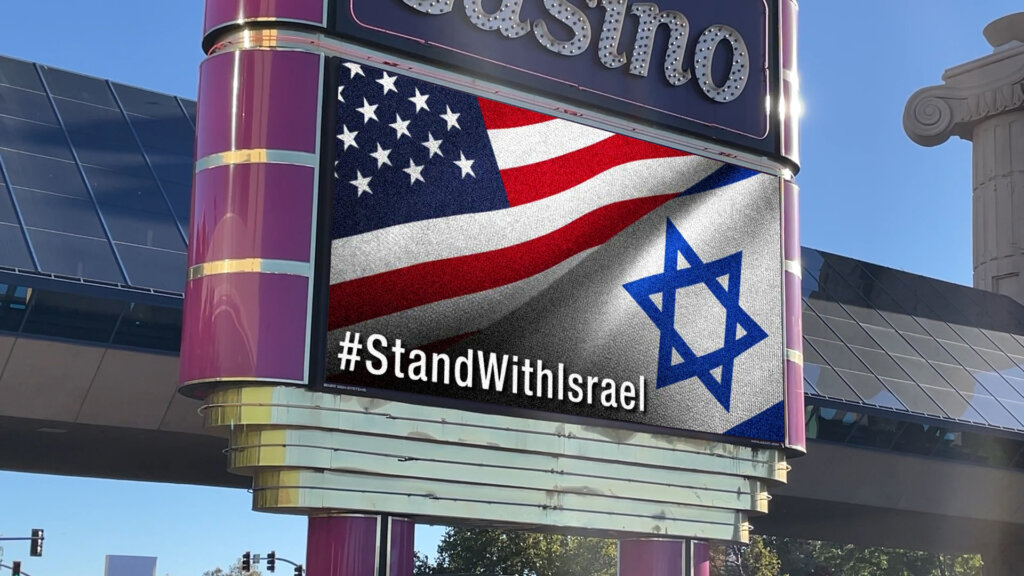
“After Oct. 7, we all had a responsibility to support Israel,” Farahi said in an interview in the Atlantis’ lavish boardroom. “It was a huge shock that an attack like this could happen.”
Farahi has long been a passionate advocate for Israel in Reno. Now, with the conflict between Israel and Farahi’s homeland of Iran, that project has become even more personal.
A kid from Tehran finds his home in the high desert of Reno
Farahi, born in 1949, grew up in an entrepreneurial family in Tehran. His father, David, graduated from the University of Tehran as a pharmacist and distributed medicine across the city. The business enterprise eventually expanded to include an office carpet factory and one of the largest chicken hatcheries in Iran.
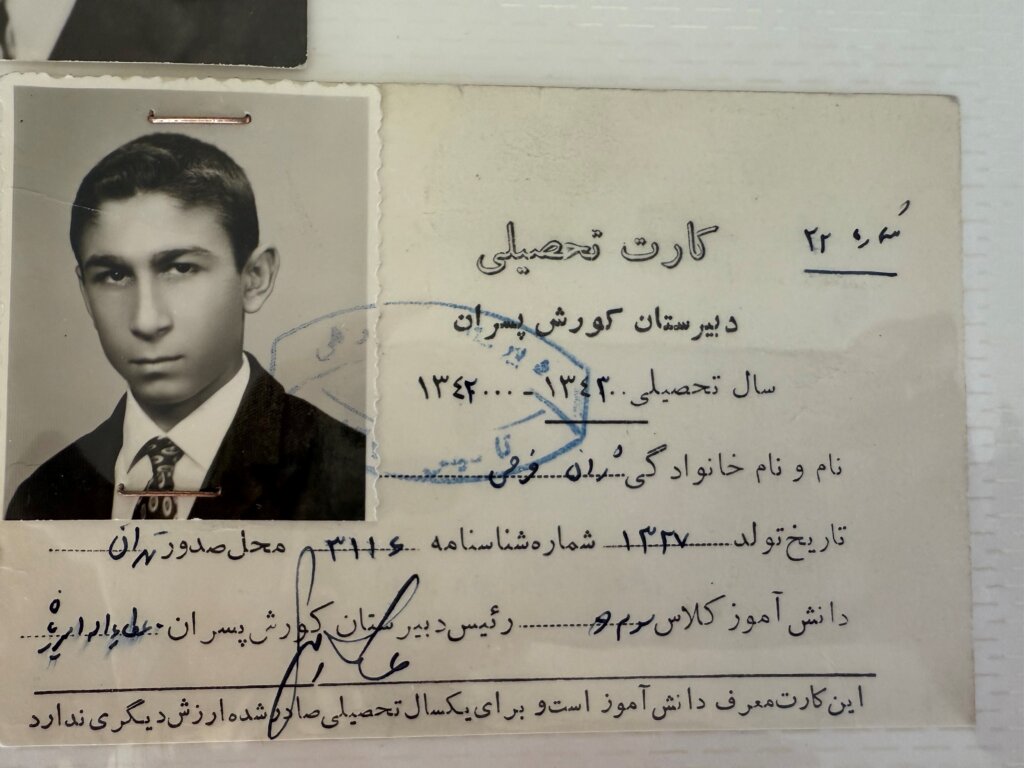
In 1964, at 15 years old, Farahi left Iran for the San Francisco Bay Area to live with family friends who had moved to the United States to promote Bahaism. There, he enrolled at Oakland Technical High School, and, eventually, California State University, Hayward. Farahi was not alone; by 1976, around 20,000 Iranian international students were studying at American universities — the largest number of any foreign country.
In 1970, Farahi’s parents met him in the United States. Initially, the family considered purchasing a shopping center and an apartment complex in the Bay Area. When those sales fell through, their real estate broker told the family about a motel that was on the market in a far-flung casino town: Reno.
“My dad said, ‘You must be crazy,’” Farahi recalled. “He had never been there, but he had heard about Reno, Nevada for gambling, prostitution and divorce.”
When the family took a road trip to Reno in 1972, however, they noticed that Reno’s high desert environment was reminiscent of Tehran. Farahi’s father changed his tune, and the family purchased the Golden Road motel.
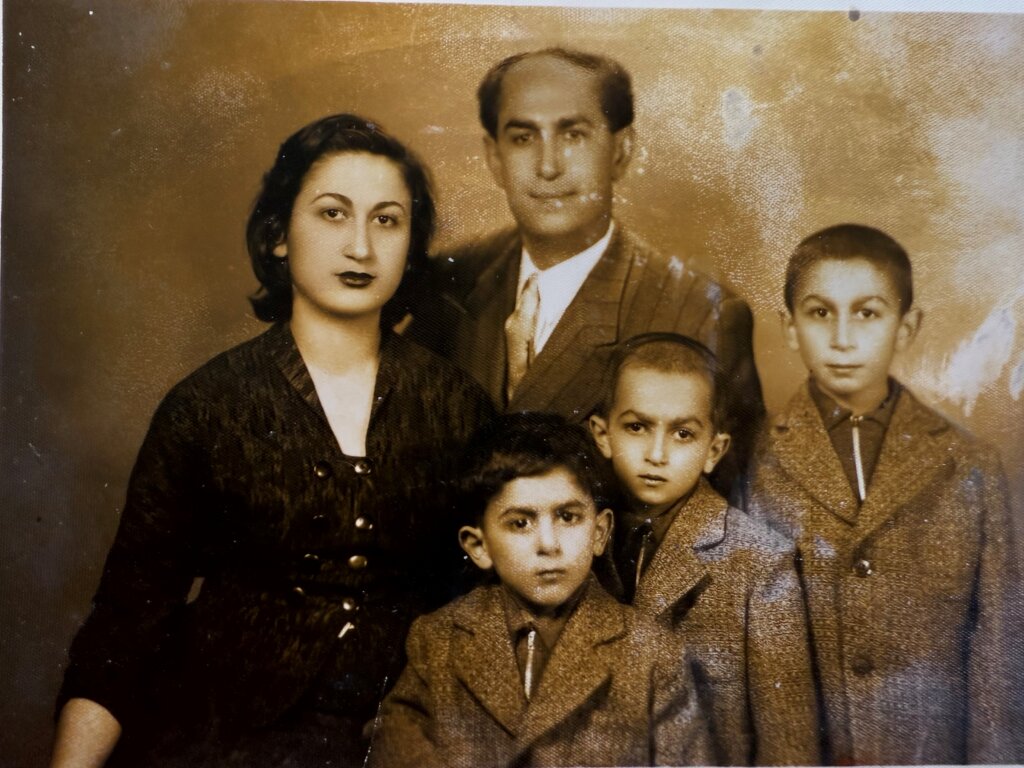
In 1991, the Farahis redeveloped the motel property into a casino hotel under the Choice Hotels Clarion brand. Five years later, the newly-independent Atlantis opened to the public in 1996. Monarch Casino & Resort, Inc. — the publicly-traded holding company that the family helms — also operates a property in Black Hawk, Colorado.
“He runs a business that has around 6,000 employees, and everyone in that organization has his ethic of service,” said Rabbi Benjamin Katz of Reno’s Conservative Temple Emanu-El. “He is a strong leader there and in the Jewish community at our synagogue.”
Jewish presence strong in Nevada’s gaming industry
Around 85,330 Jews live in Nevada, the vast majority in the Las Vegas area — about a seven-hour drive from Northern Nevada. Jewish Nevada’s recent community study found that only 15 percent of Nevada Jews call Reno home.
“There has always been that question of ‘Who is my child going to invite to their bar or bat mitzvah,’” said Rebbetzin Sarah Cunin, co-founder of Chabad of Northern Nevada.
While Nevada does not have the largest Jewish community, the impact of Jews in the Silver State is pronounced. In the heyday of organized crime, the Jewish mafia — nicknamed the “Kosher Nostra” — played an instrumental role in establishing the original Las Vegas casino hotels. In recent decades, Jews have helped popularize the mega resort model in Nevada.
“Jews have made this country in every arena,” Farahi said. “Who are the top two leaders of the [hotel and casino] business? Sheldon Adelson and Steve Wynn.”
Wynn, born Weinberg, developed iconic casino properties like The Mirage, the Bellagio and Treasure Island in Las Vegas and Atlantic City. The late Adelson, founder of the influential Las Vegas Sands Corp., gained a reputation as a prominent Jewish philanthropist alongside his wife, Miriam. Adelson was a major contributor to political candidates and causes, to Birthright Israel, and to a Jewish day school and Chabad center in Las Vegas that bear the couple’s name.
Farahi is particularly proud of his financial support for Chabad of Northern Nevada since the Cunin family established it in 1997.
“He comes in early, and he sees the vision. The Rebbe’s vision was to touch every Jew,” Rebbetzin Cunin said — referring to Chabad’s late spiritual leader, Rabbi Menachem Mendel Schneerson. “John has always been a stalwart supporter of the Rebbe’s vision. He loves Jews. Honestly, he loves being Jewish.”
The Chabad building on Reno’s Moana Lane that also houses its preschool, the Aleph Academy, was previously the Farahi family’s real-estate office. Chabad at the University of Nevada, Reno — run by the Cunins’ daughter and son-in-law — recently announced a $4 million initiative to build its first permanent center. “John really has been a huge supporter of that project,” Cunin said.
“I am especially concerned about how we are melting away in this country,” Farahi said. “I feel that every Jew has a responsibility to teach their children about our contributions to humanity, rather than only the tragic history of forced conversions, expulsion and, of course, the Holocaust.”
The ‘backbone’ of the Jewish community in Reno
Many Jewish communities are centered around a synagogue. In Reno, Jews also congregate at the Atlantis.
In recent years, the Atlantis’ ballrooms have hosted fundraisers for Nevada’s Jewish senator, Jacky Rosen; a gala for Christians United for Israel; and a free screening of a documentary about Menachem Begin. A Jewish deli serves reuben sandwiches and Dr. Brown’s sodas just off the casino floor. And Temple Sinai, the local Reform congregation, holds its Passover seders in the Atlantis’ banquet halls.
“Small synagogues that are able to sustain themselves typically have a few families who want to support the Jewish community,” said Temple Emanu-El treasurer Marc Siegal. “At Temple Emanu-El, we are blessed to have the Farahi family as well as a couple others.”
“He is very committed to bringing people — Jewish and non-Jewish, first-timers and seasoned veterans — to Israel,” Siegal said. Farahi’s guests on these trips — the last of which he completed in May — have included a Nevada Governor and two presidents of the University of Nevada, Reno.
Farahi’s public pronouncement of his support for Israel has not come without its detractors.
One group that was scheduled to host a meeting at the Atlantis threatened to cancel unless the “#StandWithIsrael” sign was taken down from the casino’s marquee. Farahi instructed his sales director to arrange a time for him to speak with the event’s organizer. Farahi came prepared with four documents: the Hamas charter, a map of the Middle East, a history of the Jewish people and a history of the land of Israel.
“By the time I got done, he shook my hand and said this was something to the effect of a ‘real education,’” Farahi recalled. The group’s meeting went ahead as scheduled.
“He is the backbone of the Jewish community in Reno,” said Mark Frank, a member of Temple Emanu-El who has known Farahi for 13 years. “He is a mensch. I realize that isn’t a Persian word, but he is a mensch.”
Strong support for Israel and sympathy for the Iranian people
Farahi has also brought Persian culture to Reno. In March, the Atlantis hosted its annual five-course dinner for Nowruz — Persian New Year — complete with a wine pairing that merged “the rich winemaking traditions of ancient Persia with the innovative spirit of Napa Valley.” In fact, his consideration for the Persian community was one of the reasons Farahi eventually removed the “#StandWithIsrael” video from the Atlantis’ marquee.
“Frankly, when Iran first attacked Israel in 2024, I felt that, since I have a lot of Persian friends here and [members of the] Iranian and Muslim community work here and are living in this community, I was trying to be considerate, so they do not feel that I am directly talking about that one issue,” Farahi said, referring to the volleys of missiles launched by Iran last April in retaliation for an Israeli airstrike on their embassy compound in Damascus.
As Jerusalem and Tehran have traded blows once again, the remaining Jews of Iran are top-of-mind for Farahi — who still has a cousin in the country.
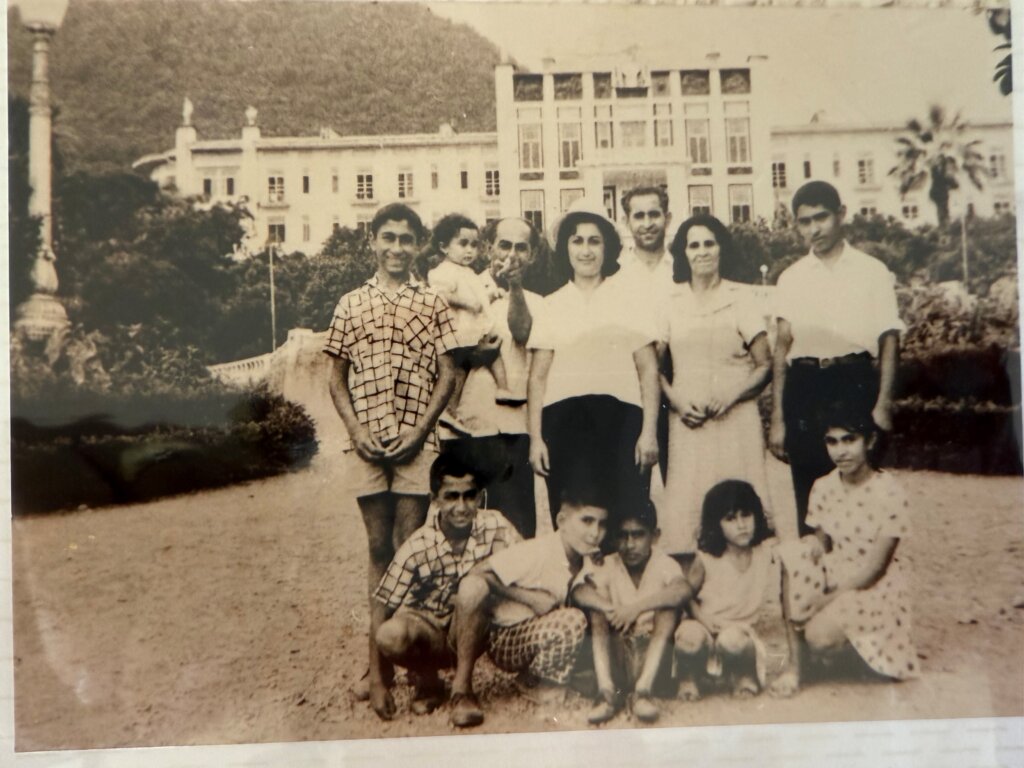
“For the minorities, the fall of the Shah was not a good thing,” Farahi said. “We were not there, but we had family there.”
Though scholars debate the exact number of Jews remaining in Iran, most estimates range from 9,000 to 20,000. More than half of the country’s Jewish population lives in Tehran.
“The reason people haven’t left is that there is 2,700 years of Jewish history in Iran. To come out of a country when you don’t have another country’s language, when you don’t have any skills, is difficult,” Farahi said.
Though Farahi is supportive of the Israeli and U.S. military campaigns, he’s skeptical that they can lead to permanent regime change in the country of his birth.
“What happens to Iran is in the hands of the Iranian people,” Farahi said.
